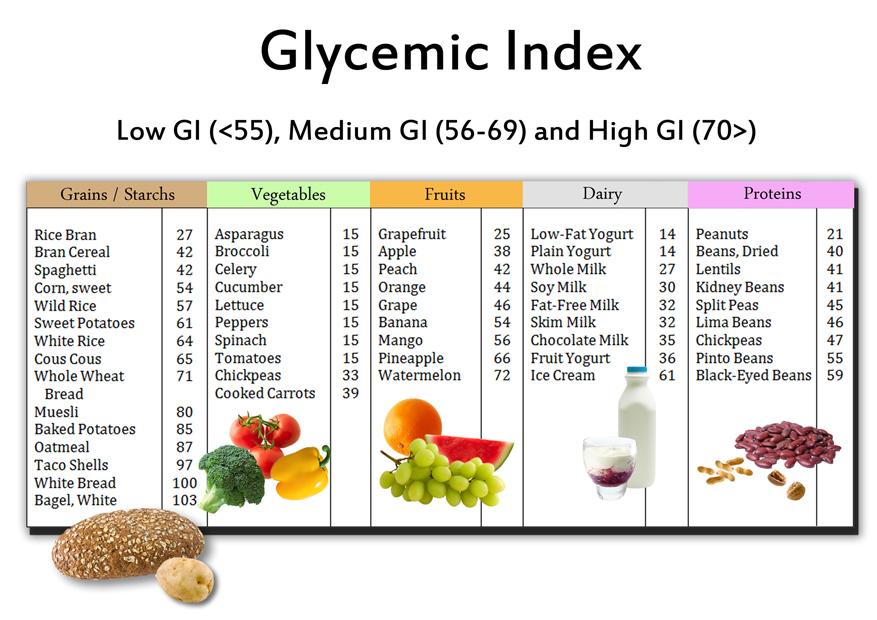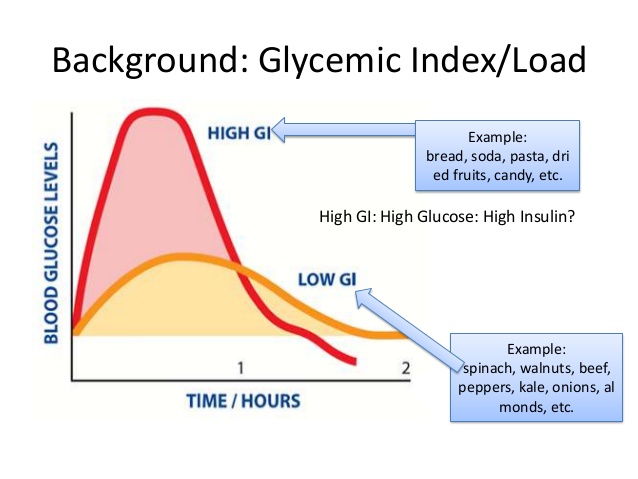Posted May 10, 2017
1
0
0
Nutritional Guidelines to Manage Blood Sugar and Insulin Levels Throughout the Day
Carbohydrates are necessary for energy production in the body. Instead of focusing on a low carb or no carb diet, it is better to focus on a low glycemic diet, which is sustainable over the long-term.
Figure 2 provides the glycemic value of different foods.

.
- Some recent literature suggests that a paleolithic diet (i.e., a diet consisting of lean meat, fish, shellfish, fruits and vegetables, roots, eggs and nuts, excluding grains, dairy products, salt or refined fats, and sugar) has been associated with marked reduction or a complete reversal of Type 2 diabetes.
- Avoid all sources of refined sugars. Fruits, grains and starchy vegetables can be consumed in controlled portions. Size of portions depends on your age, height, weight and if you are Type 1 or Type 2 Diabetic.
- Moderate to light exercise should be incorporated into your lifestyle changes.
- Hydration – drink ½ body weight of water in oz, throughout the day.
- Each meal or snack should be consumed with a fat and/or protein source, to avoid blood sugar and insulin spikes throughout the day. For example, an apple with almond butter or full-fat cottage cheese with blueberries.
Figure 3 shows that foods with a high glycemic index lead to high blood sugar and insulin spikes.

Please contact Zita Easton (CNS) at 303 250 5766 for your customized recommendations.
Reference: https://www.ncbi.nlm.nih.gov/pmc/articles/PMC3977406/ accessed on 3/30/2017.
